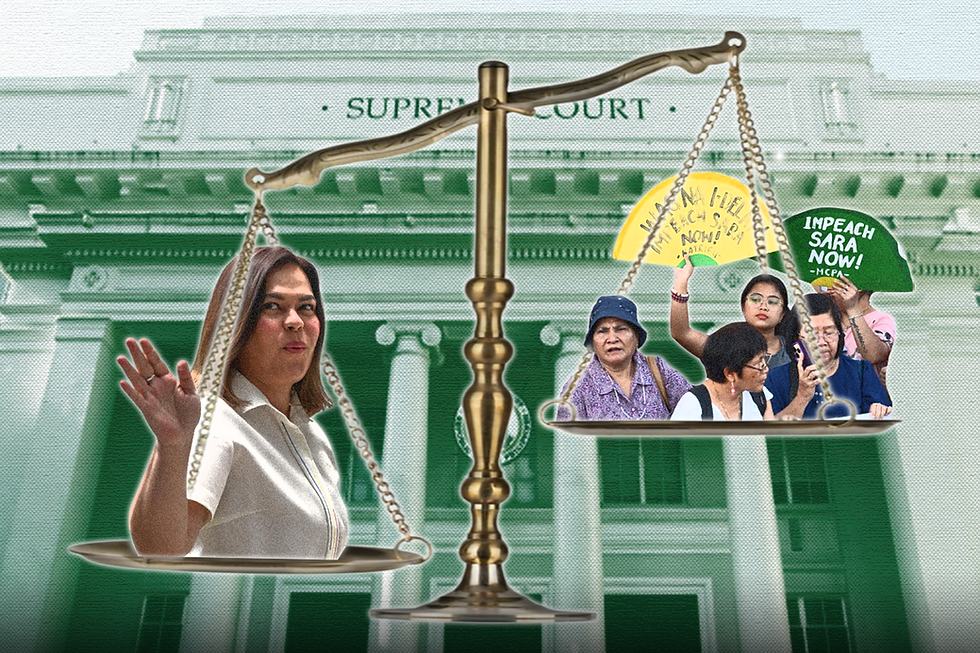A democratic loss
- The Communicator
- Aug 6, 2025
- 3 min read
In a verdict that disturbs the foundations of justice, accountability is sacrificed to wither away.
On July 25, 2025, the Philippine Supreme Court delivered a unanimous ruling that halted the impeachment trial of Vice President Sara Duterte, declaring the House of Representatives’ proceedings unconstitutional. The Court insists it merely enforced constitutional safeguards by citing violations of the one-year bar rule and due process.

The Supreme Court justified its decision by invoking its expanded judicial power under Article VIII, Section 1 of the Constitution, asserting that impeachment, while political, must adhere to legal standards.
On the contrary, senators and legal experts strongly object to this reasoning. Senator Kiko Pangilinan accused the Court of “shackling” Congress, stressing that the senate's sole impeachment trial power is a mandate the judiciary cannot override. The National Union of People's Lawyers (NUPL) echoed this, warning that the ruling ventures into the House’s exclusive prerogative, blurring the so-called separation of powers.
The heart of the controversy lies in the Court’s reinterpretation of how impeachment complaints are initiated. In Francisco v. House (2003), the Court ruled that initiation occurs only upon referral to the Justice Committee. Here, however, it held that mere inclusion in the Order of Business triggers the one-year bar, even without referral.
Atty. Romeo Cabarde of the Ateneo Legal Advocacy Center called it “a puzzling twist” that undermines Francisco and creates a dangerous loophole. The NUPL also noted that the first three complaints against Duterte were never referred to the Justice Committee, rendering them inert under Francisco. By treating them as “initiated,” the Court, in the NUPL’s words, “conjured a bar from proceedings that never began.
The Court also nullified the impeachment for violating Duterte’s due process rights, citing her lack of access to evidence or opportunity to respond before House transmittal. But the NUPL countered that the Constitution explicitly states complaints filed by one-third of the House “shall forthwith proceed” to trial with no pre-transmittal hearings required. Atty. Arvin Dexter Lopez of Davao’s Union of Peoples’ Lawyers stated that the ruling “makes it even harder for ordinary citizens to hold impeachable officers accountable”.
The ruling’s timing is also striking. An OCTA Research survey revealed that 80% of Filipinos wanted Duterte to face trial, with even 69% support in Mindanao. In hindsight, blocking the trial erupts the public's distrust. The message behind the Supreme Court's decision is loud and clear—powerful officials can evade and be invincible to scrutiny. Bluntly, the SC’s decision is a betrayal of the Constitution’s accountability mechanisms.
The ruling’s long-term implications are also fearsome. Atty. Cabarde warned that a House leadership could now file superficial complaints to shield allies, exploiting the one-year bar. Atty. Lopez agreed, noting that whoever files first, no matter how bogus, could block legitimate complaints. The NUPL’s fear is also clear that the 1987 Constitution, designed to check power, is being maneuvered for protection.
The Supreme Court’s ruling is not an acquittal, though. As its spokesperson clarified, Duterte may still face impeachment after February 2026. But the decision’s procedural rigidity made a precedent that risks paralyzing accountability. We must realize that this is not about Duterte alone, but whether the system can truly hold powerful officials accountable.
The path forward demands legislative clarity to close loopholes, media vigilance to expose abuses, and citizen pressure to demand transparency. As the NUPL emphasized, the Philippine Constitution was written precisely to prevent the return of impunity. If this ruling diminishes that purpose, the loss is not just legal—it’s democratic.
Article: Rupert Liam Ladaga
Graphics: Ericka Castillo







Comments